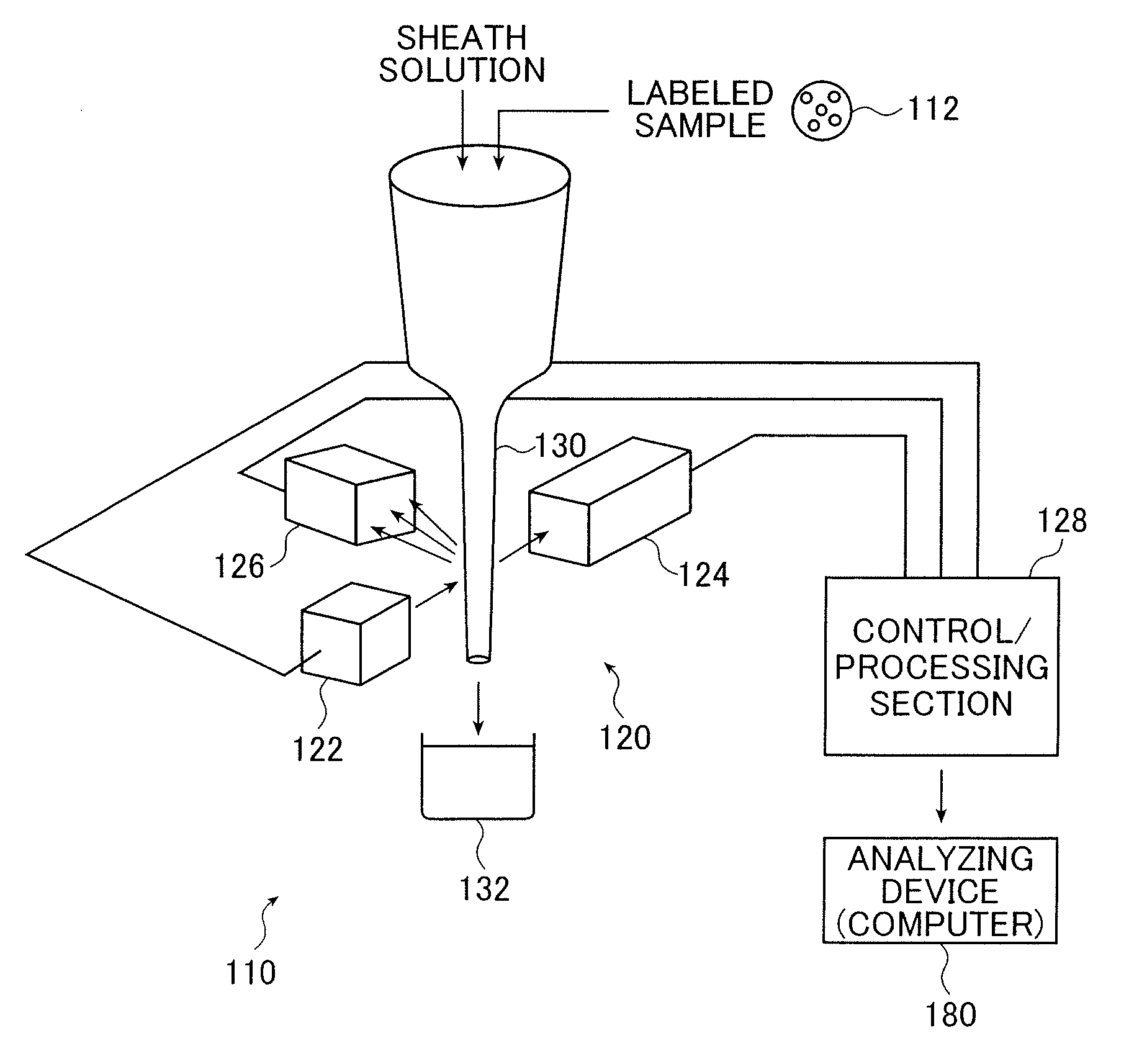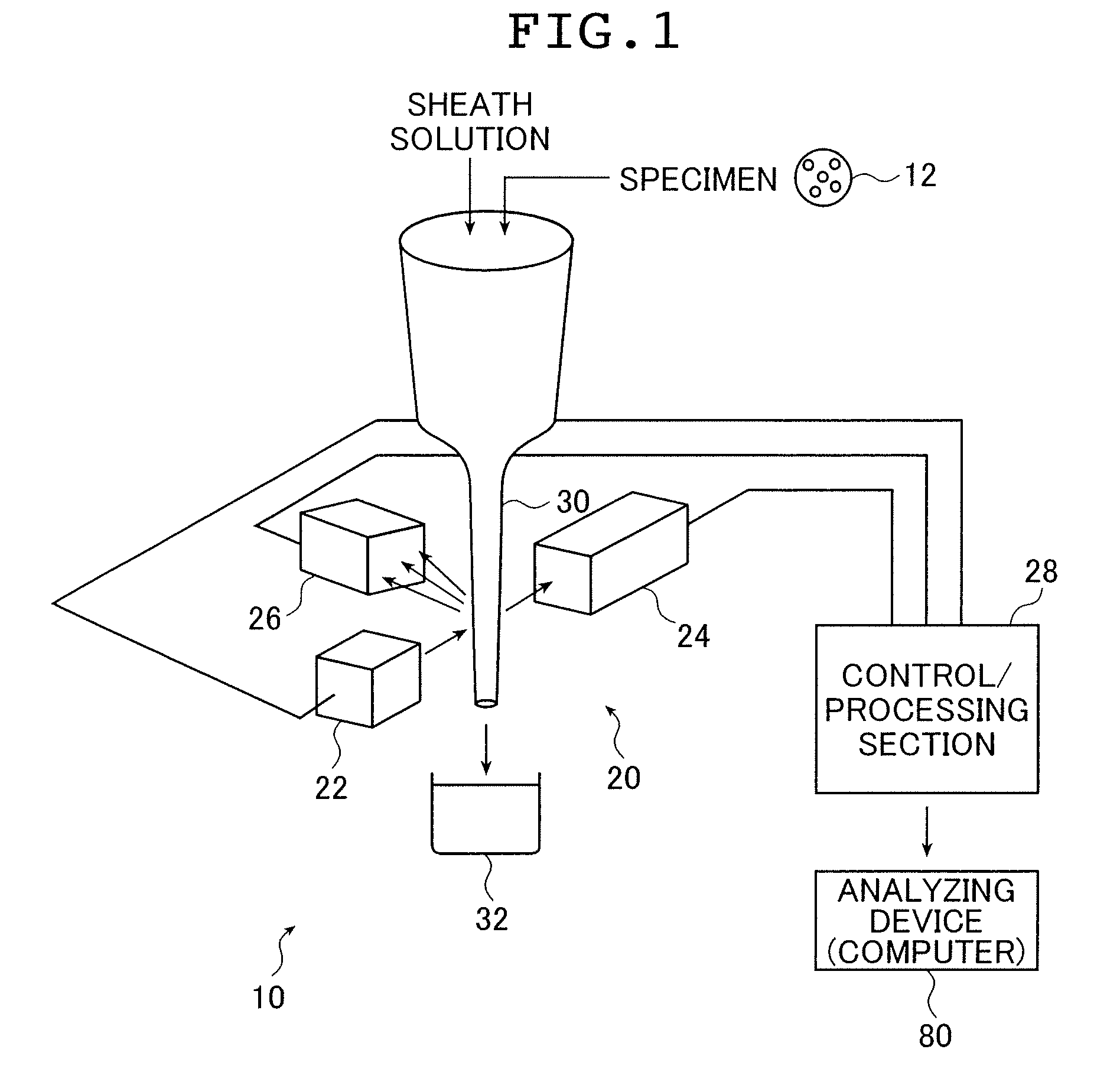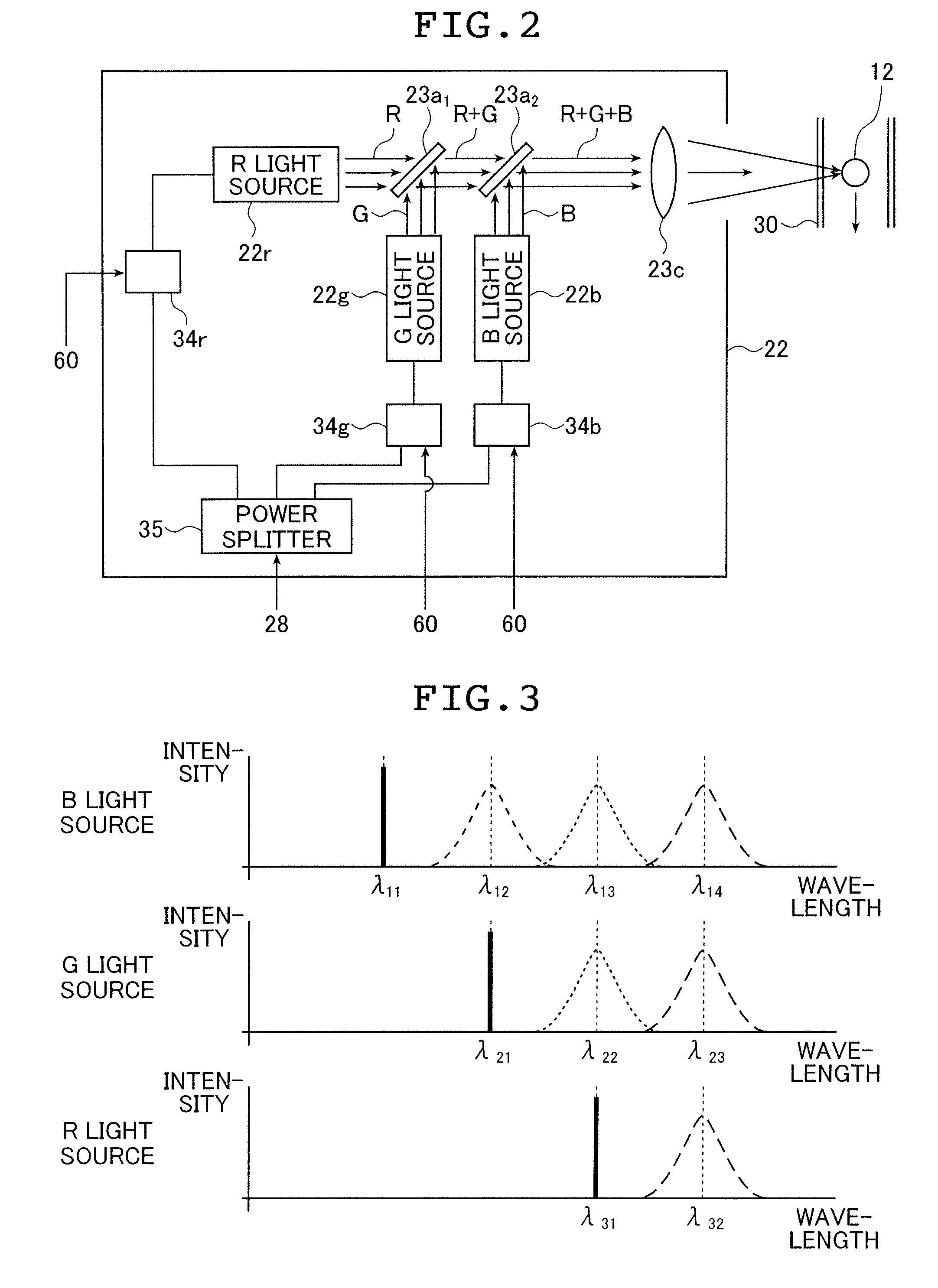Fluorescence detecting device and fluorescence detecting method
a fluorescence detection and fluorescence technology, applied in the direction of luminescent dosimeters, optical radiation measurement, instruments, etc., can solve the problems of inability to analyze biologic materials efficiently in a short time by using a large variety of micro beads at once, difficult to identify and analyze an extremely large number of objects to be measured, etc., to achieve efficient specification of objects, increase the number of identifiable kinds of fluorescence, and be measured in a short time
- Summary
- Abstract
- Description
- Claims
- Application Information
AI Technical Summary
Benefits of technology
Problems solved by technology
Method used
Image
Examples
first embodiment
[0093]First, the present invention will be described.
[0094]FIG. 1 is a schematic structural diagram showing a flow cytometer 10 using a fluorescence detecting device using an intensity-modulated laser beam according to the present invention.
[0095]A flow cytometer 10 includes a signal processing device 20 that irradiates a specimen 12 such as micro beads to be measured with a laser beam, and detects a fluorescence signal of fluorescence that is generated by fluorochromes disposed in the specimen 12 to process a signal, and an analyzing device (computer) 80 that analyzes the objects to be measured in the specimen 12 on the basis of the processed results that have been obtained by the signal processing device 20.
[0096]The signal processing device 20 includes a laser light source section 22, light receiving sections 24 and 26, a control / processing section 28 including a control section that modulates in intensity the laser beam from the laser light source section 22 at a given frequency...
second embodiment
[0172]Subsequently, a fluorescence detecting device according to the present invention will be described below.
[0173]FIG. 9 is a schematic structural diagram showing a flow cytometer 110 using a fluorescence intensity detecting device with an intensity-modulated laser beam according to the present invention.
[0174]The flow cytometer 110 includes a signal processing device 120 that irradiates, with a laser beam, labeled samples 112 that are labeled by adhering the fluorochromes to receptor samples (hereinafter referred to as “samples”) such as micro beads or specific cells by a chemical coupling or physical coupling, and detects the fluorescence signals of fluorescence that are generated by the labeled samples 112 to process the signals. The flow cytometer 110 also includes an analyzing device (computer) 180 that analyzes the labeled samples 112 according to the processing result which is obtained by the signal processing device 120. The samples themselves conduct autofluorescence acc...
PUM
 Login to View More
Login to View More Abstract
Description
Claims
Application Information
 Login to View More
Login to View More - R&D
- Intellectual Property
- Life Sciences
- Materials
- Tech Scout
- Unparalleled Data Quality
- Higher Quality Content
- 60% Fewer Hallucinations
Browse by: Latest US Patents, China's latest patents, Technical Efficacy Thesaurus, Application Domain, Technology Topic, Popular Technical Reports.
© 2025 PatSnap. All rights reserved.Legal|Privacy policy|Modern Slavery Act Transparency Statement|Sitemap|About US| Contact US: help@patsnap.com



